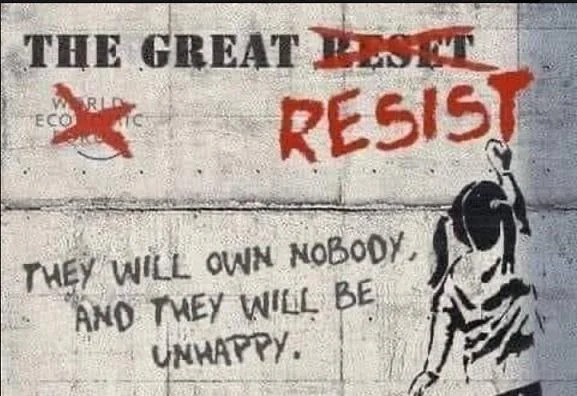
This week’s release of the Sora text-to-video engine has reignited a recent debate. It seems to most well-informed observers that artifical intelligence is going to make a large number of occupations obsolete in a short number of years. This has got people talking about a universal basic income again. So VJM Publishing does the maths.
Let’s say our putative UBI is $385 per week, across 52 weeks, making it just over $20,000 per year. $20,000 times 4 million eligible Kiwis equals $80 billion per year. Where to find that?
There’s one really obvious source of finding half of that money: the existing benefit system. According to budget.govt.nz, existing benefit expenses are some $40 billion per year. A UBI would mean that there was no longer any need to maintain the existing welfare system.
This would also mean that WINZ itself could be completely scrapped. The welfare bureaucracy would no longer have any reason to exist once a UBI was in place. That would save another $3 billion (also as per budget.govt.nz above).
Many will be astonished to hear that WINZ spends about three billion a year just administering benefits. But that is the price of not having a universal income. With no universal income, welfare benefits have to be gatekept to the “truly worthy”. This means at least one WINZ office, usually with dozens of staff, in every major built-up area in the country, to deter the supposed hordes of bludgers.
That’s $43 billion of the $80 billion.
A second area of savings comes from church tax. Although figures for New Zealand are unclear, it’s estimated that Australia is missing out on some AUD10,000,000,000 per annum from not having church taxes. Given that Australia is over five times larger than New Zealand, that suggests that we could bring in at least $2 billion from a church tax.
The only reason why churches are already untaxed in Australia and New Zealand is thanks to an antiquated pre-colonial British law written under the then-common delusion that the Christian religion adds value to society. Now that Christians are a minority in New Zealand, and in the wake of mass Christian opposition to the cannabis referendum, it’s neither necessary nor possible to continue with this delusion.
A $2 billion annual church tax would bring us to $45 billion.
A third area of savings comes from a Georgist-style tax on ground rents. The New Zealand Property Investor’s Federation believes that the total size of the “rental economy” is about $15 billion. That’s fifteen billion dollars earned through sheer extortion, a parasitic form of income-gathering that causes innumerable harms to wider society – and which is otherwise untaxed.
A Georgist-style 80% tax on ground rents would therefore bring in some $12 billion. Perhaps this can be adjusted down to $10 billion on the basis that some of the rental economy consists not only of simple ground rents, but also rent on improvements, which remains untouched by a land tax under Georgist philosophy.
That brings us to $55 billion.
Empty or otherwise landbanked properties comprise a fourth area of savings. According to the Empty Houses Report, there are some 95,000 empty homes in New Zealand. Some of these are being kept empty because of landbanking, some as holiday homes, some as second homes, some as vacant rentals. In any case, if the ground rents of these empty homes were, on average, $500 per week, and if these ground rents were taxed at 80% as per the Georgist principles above, that would bring in another $2 billion, taking our total to $57 billion.
Note that these land taxes entirely avoid taxes on family homes.
New Zealand is one of the only countries in the OECD to not have a capital gains tax, which is a fifth area of savings. The overall effect of this is to stratify society, keeping the poor poor and the rich rich. The reasons for New Zealand not already having a capital gains tax are complicated, but they can be summarised as greed making the country a worse place to live.
According to the Tax Working Group, a capital gains tax in New Zealand would bring in some $6 billion per annum ten years after introduction. The vast majority of this money would otherwise be getting hoarded by the people who need it the least. Thus, with a capital gains tax we have accounted for $63 billion of the necessary $80 billion.
Then the rest of the cost of an UBI will be naturally clawed back by the tax system. If the median wage in New Zealand is $31.61 an hour, and if the average worker works 1,369 hours per annum, then the average already-employed person is bringing in some $43,274 per annum already.
Someone receiving $43,274 will pay $6,073 in PAYE, but someone receiving $63,274 will pay $12,002, almost $6,000 per annum more. So if a $20,000 UBI would raise the average worker’s income to $63,274, roughly $6,000 of that would immediately be taxed back. Multiply this by four million workers and you have an extra $24 billion in PAYE.
That would actually take us over the $80 billion by some margin, to $87 billion or so. For maximum efficiency, we might like to introduce a $20,000 tax-free threshold at this point – the logic being that if it costs $20,000 per annum to survive, taxing anyone making less than this is pointless, because it will have to come back to them in the form of government services anyway.
This would cost slightly over $10 billion, i.e. roughly $2,500 in foregone PAYE for each of the four million employed people.
The remaining shortfall can be accounted for by GST intake on increased spending. If the average person spends $5,000 extra per annum on account of their UBI, then some $750 of that will be recouped by the Government in the form of GST. Multiplied by four million workers makes for an extra $3 billion.
In summary, a $90 billion demand for a UBI plus a $20,000 tax-free threshold can be met by scrapping WINZ and the entire welfare system ($43 billion), a church tax ($2 billion), a land tax on the ground rents of rental property ($10 billion), a land tax on empty homes ($2 billion), a capital gains tax ($6 billion), naturally increased PAYE ($24 billion) and naturally increased GST ($3 billion). The numbers for a UBI in New Zealand add up.
*
If you enjoyed reading this piece, buy a compilation of our best pieces from previous years!
Best VJMP Essays and Articles of 2023
Best VJMP Essays and Articles of 2022
Best VJMP Essays and Articles of 2021
Best VJMP Essays and Articles of 2020
Best VJMP Essays and Articles of 2019
Best VJMP Essays and Articles of 2018
Best VJMP Essays and Articles of 2017
*
If you would like to support our work in other ways, make a donation to our Paypal! Even better, buy any one of our books!




